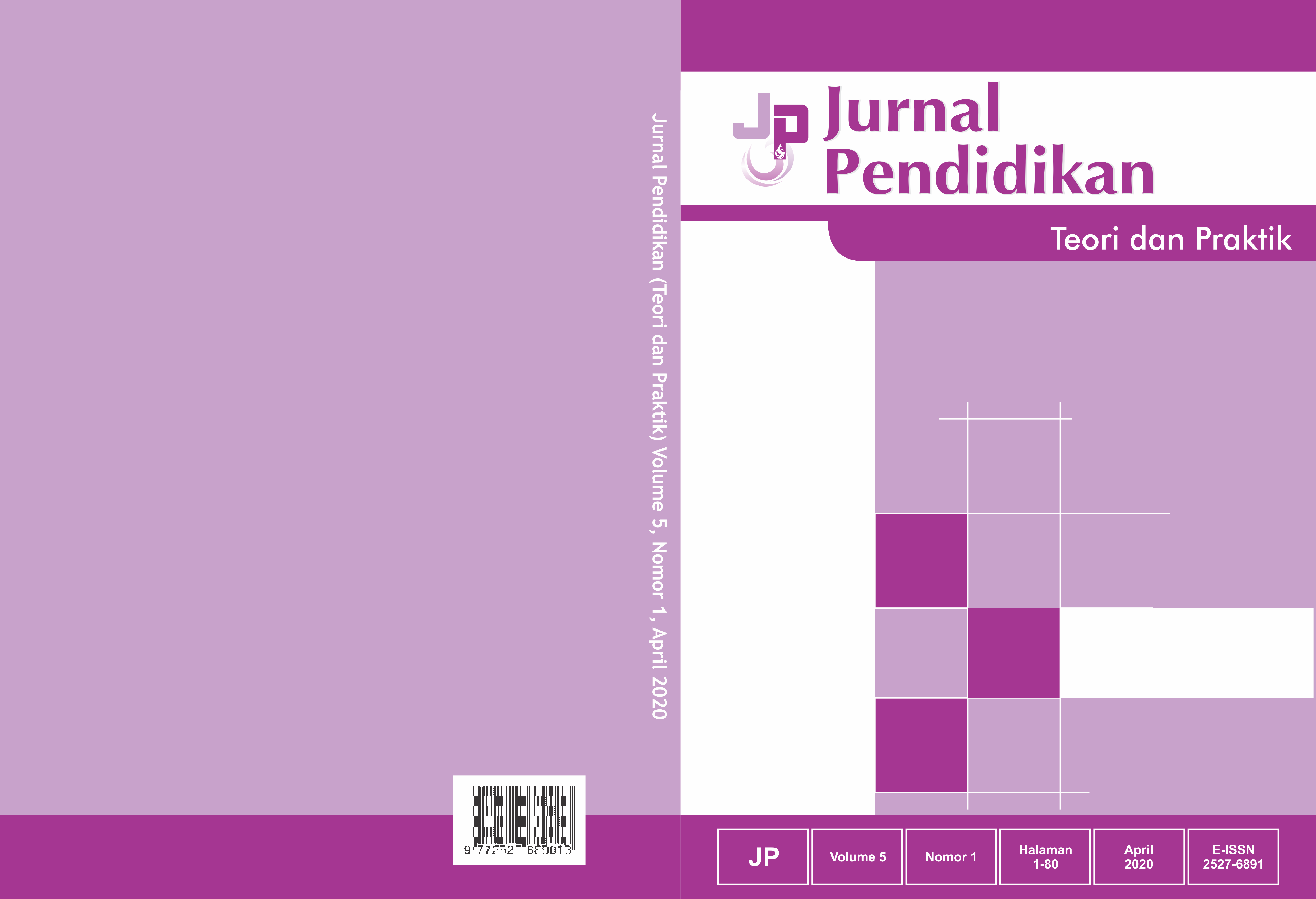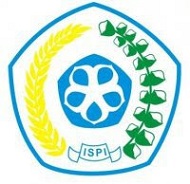MENINGKATKAN EFEKTIFITAS HASIL BELAJAR SISWA MELALUI SISTEM PENDIDIKAN 4 JAM PEMBELAJARAN PADA JENJANG SMA
DOI:
https://doi.org/10.26740/jp.v5n1.p%25pKeywords:
Full Day school, 4 hours of learning, education systemAbstract
Full Day school is an education system that carries out a full-day learning process that starts from 6:45 until 3:00. Behind the advantages of the 2013 curriculum that allows productive students to study in school for a long time. The system also has a weakness that is quite influential on students that is not effective in providing rest time for the brain. The system might cause students to become bored, tired and feel burdened because they have to study for the duration of that long. This study aims to discuss how the planned forms of innovation provide solutions to the ineffectiveness of the education system in the 2013 curriculum and about how the 4-hour learning innovation system in one day as a form of the effectiveness of learning outcomes. This system has a disadvantage that is quite influential on students that is not effective in providing rest time for the brain. The system might cause students to become bored and feel burdened because they have to study for the duration of that long. The research method used is descriptive qualitative by examining several data sources and analyzing and comparing existing innovations with previous research. The development of this innovation is that it can reduce the burden of students' minds from the 2013 curriculum education system by using a 4-hour learning design to focus students on learning some subjects they want to master, it is supported by holding reflections on student learning outcomes so that teachers can evaluate how development learners learn from the teaching and learning process that has taken place.
References
Arum, D. P. (2015). JURNAL PENA INDONESIA (JPI) Jurnal Bahasa Indonesia, Sastra, dan Pengajarannya. Jurnal Pena Indonesia, 1(1), 8095.
Baharun, H., & Alawiyah, S. (2018). Pendidikan Full Day School Dalam Perspektif Epistemologi Muhammad ˜Abid Al- Jabiri. POTENSIA: Jurnal Kependidikan Islam, 4(1), 1. https://doi.org/10.24014/potensia.v4i1.4362
Baharun, H., & Alawiyah, S. (2018). Pendidikan Full Day School Dalam Perspektif Epistemologi Muhammad ˜Abid Al- Jabiri. POTENSIA: Jurnal Kependidikan Islam, 4(1), 1. https://doi.org/10.24014/potensia.v4i1.4362
De Coninck, K., Walker, J., Dotger, B., & Vanderlinde, R. (2020). Measuring student teachers self-efficacy beliefs about family-teacher communication: Scale construction and validation. Studies in Educational Evaluation, 64(May 2019), 100820. https://doi.org/10.1016/j.stueduc.2019.100820
Faizan Khoirul.(2018).Pemanfaatan Jurnal Refleksi Sebagai Strategi Metakognitif Dalam Meningkatkan Keaktifan Dan Hasil Belajar Matematika,Jurnal Lentera Pendidikan.20(1).33-47.
Faris Al Fitri.(2015).Kurikulum 2013 Dalam Perspektif Filsafat Pendidikan Progresivisme.Jurnal Filsafat.25(2).316-338.
H.Ajeng Nuzulia,Santoso Djoko, Ninghardjanti Patni.(2017).Pengaruh Metode Pembelajaran Penugasan Dan Pemanfaatan Media Pembelajaran Terhadap Hasil Belajar.Jurnal Informasi & Komunikasi Administrasi Perkantoran.1(1).22-36.
Henry, J. (2020). The cinematic pedagogies of underprepared teachers. Teaching and Teacher Education, 89, 102990. https://doi.org/10.1016/j.tate.2019.102990
Huda, M., Hasjim, N., & Sunanda, A. (2009). Pembelajaran Sastra:¯Metode Pengajaran Dan Respon Siswa. Jurnal Penelitian Humaniora 10(1), 96106.
Hunowo Momy A.(2016).Konsep Full Day School Dalam Perspektif Sosiologi Pendidikan.Jurnal Irfani.12(1).114-134.
Imroatus, S. (2016). Full Day School dalam Pengembangan Bakat dan Minat Siswa. Fenomena, 15(oktober), 331350. Retrieved from https://bit.ly/2E60Ero
Kyriakides, L., Anthimou, M., & Panayiotou, A. (2020). Searching for the impact of teacher behavior on promoting students cognitive and metacognitive skills. Studies in Educational Evaluation, 64(July 2019), 100810. https://doi.org/10.1016/j.stueduc.2019.100810
Marsiglia, F. F., Wu, S., Ayers, S., & Weide, A. (2019). Randomized effectiveness trial of a parent and youth combined intervention on the substance use norms of Latino middle school students. Journal of Substance Abuse Treatment, 97(November 2018), 7583. https://doi.org/10.1016/j.jsat.2018.11.012
Miftah, M. (2018). MENAKAR KEBIJAKAN FULL DAY SCHOOL (Studi Analisis Permendikbud No 23 Tahun 2017). Jurnal Perspektif, 2(1), 1. https://doi.org/10.15575/jp.v2i1.14
Miftakhul Huda, H. N., & Sunanda Adyana. (2009). Pembelajaran Sastra: Metode Pengajaran Dan Respon Siswa (Vol. 10, pp. 96106). Vol. 10, pp. 96106.
Mustofa.(2007).Upaya Pengembangan Profesionalisme Guru Di Indonesia.Jurnal Ekonomi Pendidikan.4(1).76-88.
Paufler, N. A., & Sloat, E. F. (2020). Using standards to evaluate accountability policy in context: School administrator and teacher perceptions of a teacher evaluation system. Studies in Educational Evaluation, 64(May 2019), 100806. https://doi.org/10.1016/j.stueduc.2019.07.007
Rahem Zaitur. (2017). Dampak Sosial Pemberlakuan Full Day School (Menimbang Manfaat Maslahat Permendikbud No 23 Tahun 2017 dan Perpres No 87 Tahun 2017). Jurnal Pendidikan Agama Islam.
Rahim, A. (2018). Full Day School dalam Tinjauan Psikologi , Sosiologi , dan Ekonomi Pendidikan. Jurnal Pendidikan Islam Iqra. 13(2), 104114. https://doi.org/http://dx.doi.org/10.21111/at-tadib.vl3i2.2376
Risnita & Asvio Nova. (2019). Evaluasi Kebijakan Program Full Day School Pada Sekolah Umum. Junal Manajemen, Kepemimpinan Dan Supervisi Pendidikan, 4(2), 121136.
Safarina, Fajria.(2008). PERBEDAAN TINGKAT KEJENUHAN BELAJAR ANTARA SISWA DI FULL DAY SCHOOL DAN NON FULL DAY SCHOOL DITINJAU DARI LAMANYA WAKTU BELAJAR. Jurnal Psikosains.3(1).31-43.
Sari Rafika Muspita.(2019).Pengaruh Kurikulum 2013 Terhadap Peningkatan Hasil Belajar Siswa Pada Mata Pelajaran Bahasa Indonesia.Jurnal Komunikasi Bahasa.7(1).33-38
Siregar, L. Y. S. (2017). Full Day School Sebagai Penguatan Pendidikan Karakter (Perspektif Psikologi Pendidikan Islam). Fikrotuna, 5(1), 306319. https://doi.org/10.32806/jf.v5i1.2945
Soapatty, L. (2014). Pengaruh Sistem Sekolah Sehari Penuh (Full Day School) Terhadap Prestasi Akademik Siswa Smp Jati Agung Sidoarjo. E-Journal UNESA, 2(2), 719733. Retrieved from http://ejournal.unesa.ac.id/index.php/jurnal-pendidikan-kewarganegaraa/article/view/7860
Solihah Imroatus.(2016).Full Day School Dalam Pengembangan Bakat Dan Minat Siswa.Jurnal Fenomena.15(2).331-350.
Tambunan, A. M., A.Y, M. H., & Degeng, I. N. S. (2017). Strategi kepala sekolah dalam mengelola konflik menyikapi dampak negatif penerapan full day school. Jurnal Pendidikan: Teori, Penelitian, Dan Pengembangan, 2(6), 848852.
Wardani, I. G. A. K. (2012). MENGEMBANGKAN PROFESIONALISME PENDIDIK GURU Kajian Konseptual dan Operasional. Jurnal Pendidikan, 13(1), 3244.
Wayan, N., & Trisnayanti, R. (2017). DALAM MENINGKATKAN DIMENSI PROSES KOGNITIF. 1, 219227.
Wicaksono, A. G. (2018). Fenomena Full Day School Dalam Sistem Pendidikan Indonesia. Jurnal Komunikasi Pendidikan, 1(1), 10. https://doi.org/10.32585/jkp.v1i1.12
Downloads
Published
How to Cite
Issue
Section
 Abstract views: 1005
,
Abstract views: 1005
, PDF Downloads: 5952
PDF Downloads: 5952








.png)





